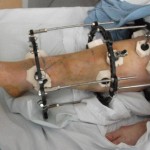How do you forget capital gains taxes? More easily than you would think, apparently.
When I see the same blunder twice in two months and the price tag to the client approaches $100,000, it’s time to write about it.
It surfaced in two Chapter 11 cases for individuals where I have subbed upon conversion to Chapter 7.
My first reaction was to write this as a “see, you shouldn’t take cases beyond your skill set“.
But as I thought more about the problem, I realized that the issue underlying this blunder isn’t confined to Chapter 11.
It’s central, whenever you do a liquidation analysis for a Chapter 7 or a Chapter 13.
Remember the old saw: nothing is certain but death and taxes? These attorneys forgot.
What’s the tax basis?
The debtors’ rental property appeared to have several hundred thousand dollars in equity and the claims of creditors were substantial. Counsel advised, and the debtors concurred, that the property be sold.
No inquiry was made as to the tax consequences of the sale.
When all the results were in, so to speak, the capital gains taxes exceeded the net cash from the sale.
Oops. Double oops. No benefit to creditors in this manoevre. And thus, perhaps no need to have sold the property.
Capital gains tax not confined to Chapter 11
This sale arose in a Chapter 11. But a look at the capital gains tax consequences should have been part of a routine analysis about the vulnerability of debtor’s property to a Chapter 7 trustee or the hypothetical Chapter 7 liquidation for Chapter 13.
It’s black letter law that property comes into the bankruptcy estate at the debtor’s tax basis. Sales of real estate in bankruptcy have no exception to applicable tax law.
The tax consequences of a sale of property of the estate must always be part of a debtor lawyer’s analysis. The fact that this occurred in a Chapter 11 isn’t the source of the blunder here.
Bankruptcy estate as separate taxpayer
The second problem in both of these cases arose because the bankruptcy estate of an individual debtor in Chapter 11 is a separate taxpayer from the debtor.
In neither of my cases had counsel gotten tax professionals engaged to prepare tax returns for the estate.
The problem presented by individual Chapter 11’s got more complicated with BAPCPA. (What didn’t?). Post BAPCPA, the debtor’s post petition earnings became property of the estate. Just how the tax consequences of post petition wages are apportioned between the debtor and the bankruptcy estate, I don’t know. But just because I don’t know, it is no less a problem.
In the case that involved Chapter 11 property sales, the debtors ended up reporting the sale on their individual tax returns. The resulting tax was not only more than the net cash, but the cash landed in the bankruptcy estate. In the absence of good legal counsel, the tax obligation fell to the individuals.
We hope to file tax returns for the Chapter 11 and amend the individual return to get the tax debt and the sale proceeds reported on the same tax return. Wish us luck.
IRS publication 908 addresses tax issues in bankruptcy. It’s online as well.
Image courtesy of Mikl Roventine









The POE in the C7 estate now may well include claims against C11 counsel. This post highlights the need for serious and thorough prefiling investigaiton and analysis. We had a lot of these types of problems in the late 80’s & 90’s with the low basis, highly leveraged farm ground in the midwest.
Thanks for the info Cathy & Jim.
At least up here in the Eastern District, there’s a shortage of attorneys competent and willing to do Chapter 11 debtor work. Because of the onerous paperwork and reporting requirements, I can only handle 2-3 cases at any one time. So, unfortunately, incompetent Chapter 11 debtor’s counsel get the work. Or, debtors hire incompetent Chapter 11 debtor’s counsel because they can’t afford competent counsel.